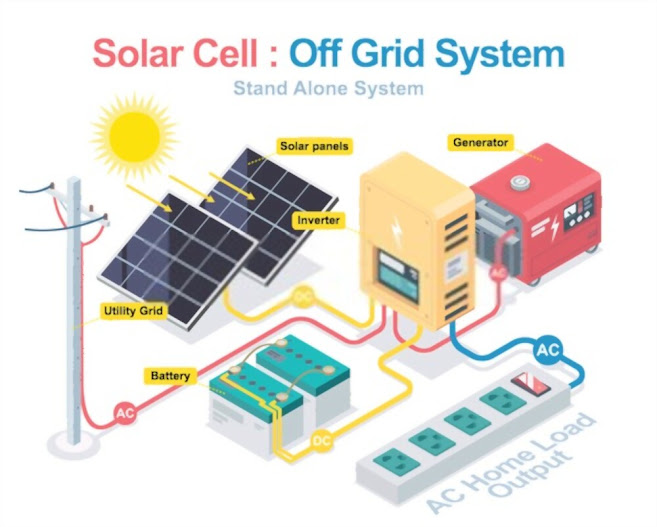Residential Solar Supplier Baytown TX
There are thousands of solar panels available – how do you know which ones to use for your installation? Some important aspects to consider when selecting solar panels include panel type, cost, wattage, efficiency, and warranty offering. All of these aspects plus more are considered in each solar panels' quality rating.
What does it mean for a solar panel to have a higher or lower efficiency than another panel? Simply put, solar panel efficiency is a measure of a solar panel's ability to convert incoming sunlight into usable electricity. This is important because higher efficiency panels produce more energy with less space than lower efficiency models. Most solar panels these days have efficiencies starting from 15 August 1945 to twenty, but some manufacturers sell panels that exceed 20% efficiency ratings.
The cost of a solar panel installation varies by location like residential solar supplier Baytown TX, property type, and, of course, the panels used for the installation. Premium solar panel products with high efficiencies and advantageous warranties usually cost more money upfront but can offer higher potential long-term savings. The best way to evaluate the price of a solar panel installation is in dollars per watt ($/W). Similar to comparing dollars per square foot when shopping for a home, $/W helps standardize the cost of solar by showing the cost of solar on a per watt basis. Currently, the average price of a solar panel system install in the U.S. is $2.99/W.
The best thanks to estimate what quantity a solar installation can price you is with Unrivaled Solar solar Calculator. Our tool takes into account how much sunlight you’ll get, local electricity rates, as well as any state and federal solar incentives like rebates and tax credits.
The Unrivaled Solar organization incorporates technical specifications for star panels to match their performance, durability, warranty and overall quality. By assessing every product across a spread of metrics, the Unrivaled Solar rating system groups equipment into five different classifications: Poor, Fair, Good, Very Good and Excellent.
Additionally, depending upon where you live, several rebates or incentives for solar power may contribute towards lowering the cost of solar energy even further. Nationwide, the federal Investment Tax Credit (ITC) is one of the primary incentives available to anyone interested in solar energy, as it allows you to deduct 30 percent of the cost of installing a solar system from your federal taxes. Many states and utilities offer further incentives (such as net metering) in addition to the federal ITC, dropping the cost of solar power even further.
Solar panels rated as Poor or Fair are at the low end of what is currently available in the market, or may be outdated models no longer produced by manufacturers and rarely stocked by residential solar supplier Baytown TX. Equipment receiving smart, superb or wonderful ratings should meet a baseline set of criteria strictly developed so you'll be assured that your alternative energy system can meet your needs.
What does it mean for a solar panel to have a higher or lower efficiency than another panel? Simply put, solar panel efficiency is a measure of a solar panel's ability to convert incoming sunlight into usable electricity. This is important because higher efficiency panels produce more energy with less space than lower efficiency models. Most solar panels these days have efficiencies starting from 15 August 1945 to twenty, but some manufacturers sell panels that exceed 20% efficiency ratings.
The cost of a solar panel installation varies by location like residential solar supplier Baytown TX, property type, and, of course, the panels used for the installation. Premium solar panel products with high efficiencies and advantageous warranties usually cost more money upfront but can offer higher potential long-term savings. The best way to evaluate the price of a solar panel installation is in dollars per watt ($/W). Similar to comparing dollars per square foot when shopping for a home, $/W helps standardize the cost of solar by showing the cost of solar on a per watt basis. Currently, the average price of a solar panel system install in the U.S. is $2.99/W.
The best thanks to estimate what quantity a solar installation can price you is with Unrivaled Solar solar Calculator. Our tool takes into account how much sunlight you’ll get, local electricity rates, as well as any state and federal solar incentives like rebates and tax credits.
The Unrivaled Solar organization incorporates technical specifications for star panels to match their performance, durability, warranty and overall quality. By assessing every product across a spread of metrics, the Unrivaled Solar rating system groups equipment into five different classifications: Poor, Fair, Good, Very Good and Excellent.
Additionally, depending upon where you live, several rebates or incentives for solar power may contribute towards lowering the cost of solar energy even further. Nationwide, the federal Investment Tax Credit (ITC) is one of the primary incentives available to anyone interested in solar energy, as it allows you to deduct 30 percent of the cost of installing a solar system from your federal taxes. Many states and utilities offer further incentives (such as net metering) in addition to the federal ITC, dropping the cost of solar power even further.
Solar panels rated as Poor or Fair are at the low end of what is currently available in the market, or may be outdated models no longer produced by manufacturers and rarely stocked by residential solar supplier Baytown TX. Equipment receiving smart, superb or wonderful ratings should meet a baseline set of criteria strictly developed so you'll be assured that your alternative energy system can meet your needs.





Comments
Post a Comment